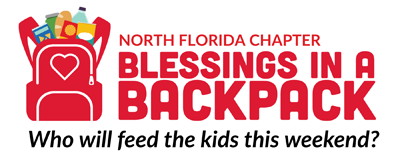National Impact
Our Mission:
Blessings in a Backpack mobilizes communities, individuals, and resources to provide food on the weekends for school-aged children across America who might otherwise go hungry.
Our Vision:
Every school-aged child in America has the nourishment needed to learn and grow. As a leader in the movement to end childhood hunger, Blessings in a Backpack strives to ensure children do not go hungry on the weekends by empowering individuals and communities to take action.
Did you know that 13.8 MILLION CHILDREN* are experiencing food insecurity? That’s one in seven† American children who may be struggling with access to food.
The consequences of hunger are much more than a growling stomach. Poor nutrition can result in a weaker immune system, increased hospitalization, lower IQ, shorter attention spans, and lower academic achievement. Children are fed during the school week by federal government programs. We want to make sure they’re getting nutritional meals over the weekend, too.
Blessings in a Backpack is a 501(c)(3) non-profit organization. During the 2023–2024 school year, we distributed more than 3 million bags of ready-to-eat food to children at 1,270 schools in 46 U.S. states and the District of Columbia.
Since 2009, Blessings in a Backpack has provided 30 million hunger-free weekends for more than one million children nationwide.

*Household Food Security in the United States in 2023. (2023). Usda.gov
†Food Research & Action Center. (2023, October 25). Hunger & Poverty in America – Food Research & Action Center. Food Research & Action Center
We are a national organization consists of seven regional chapters and more than 1,200 community-driven programs. We share the goal of preventing childhood hunger on the weekends for the kids who need us most.
On average, $175 will feed one child on the weekends for one 36-week school year through the Blessings in a Backpack program—in the First Coast, the cost is $150 per child/school year. The results: nourished kids ready to learn.
Food is an essential building block, and in this case, it is truly a blessing, especially to a hungry child!
Visit the Ways You Can Help section of our site to find out the various ways in which you can help Blessings in a Backpack feed more children. Click here to make a gift that will help feed a child this weekend!
Click here for the most recent Form 990.
Click here for the most recent Audited Financials.
Click here for the full Fiscal Year Annual Report.
Click here for our Impact Report.
